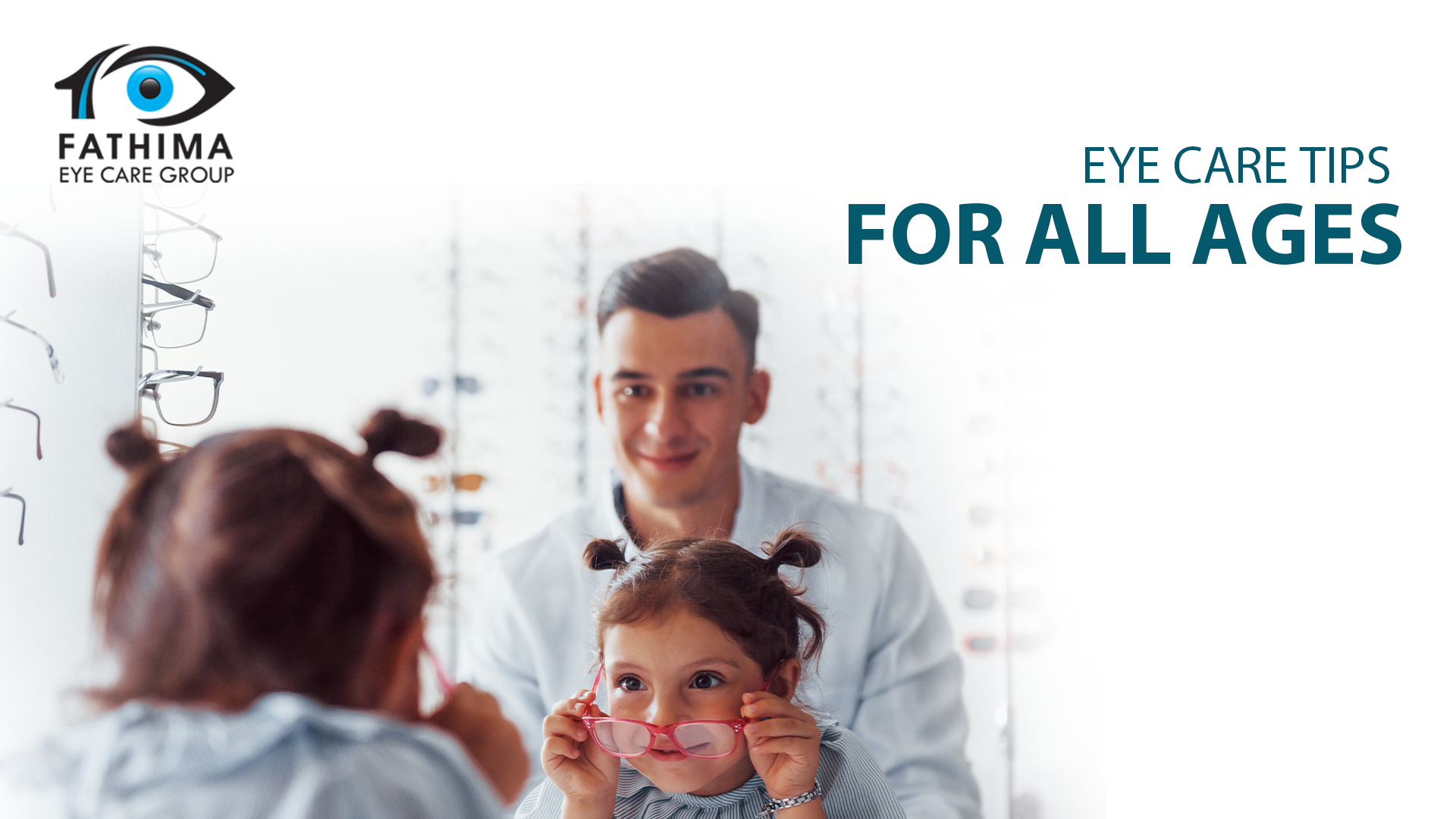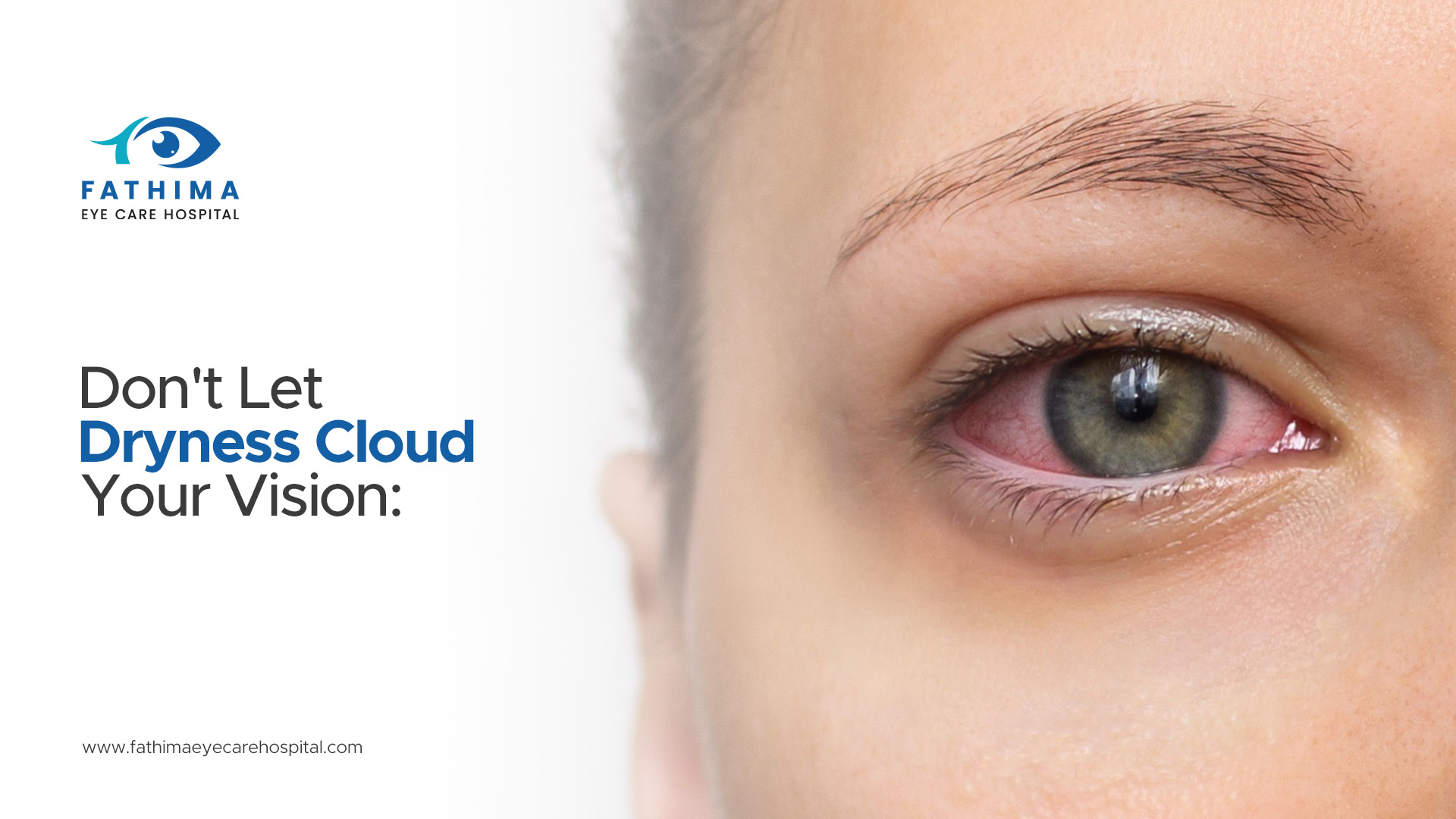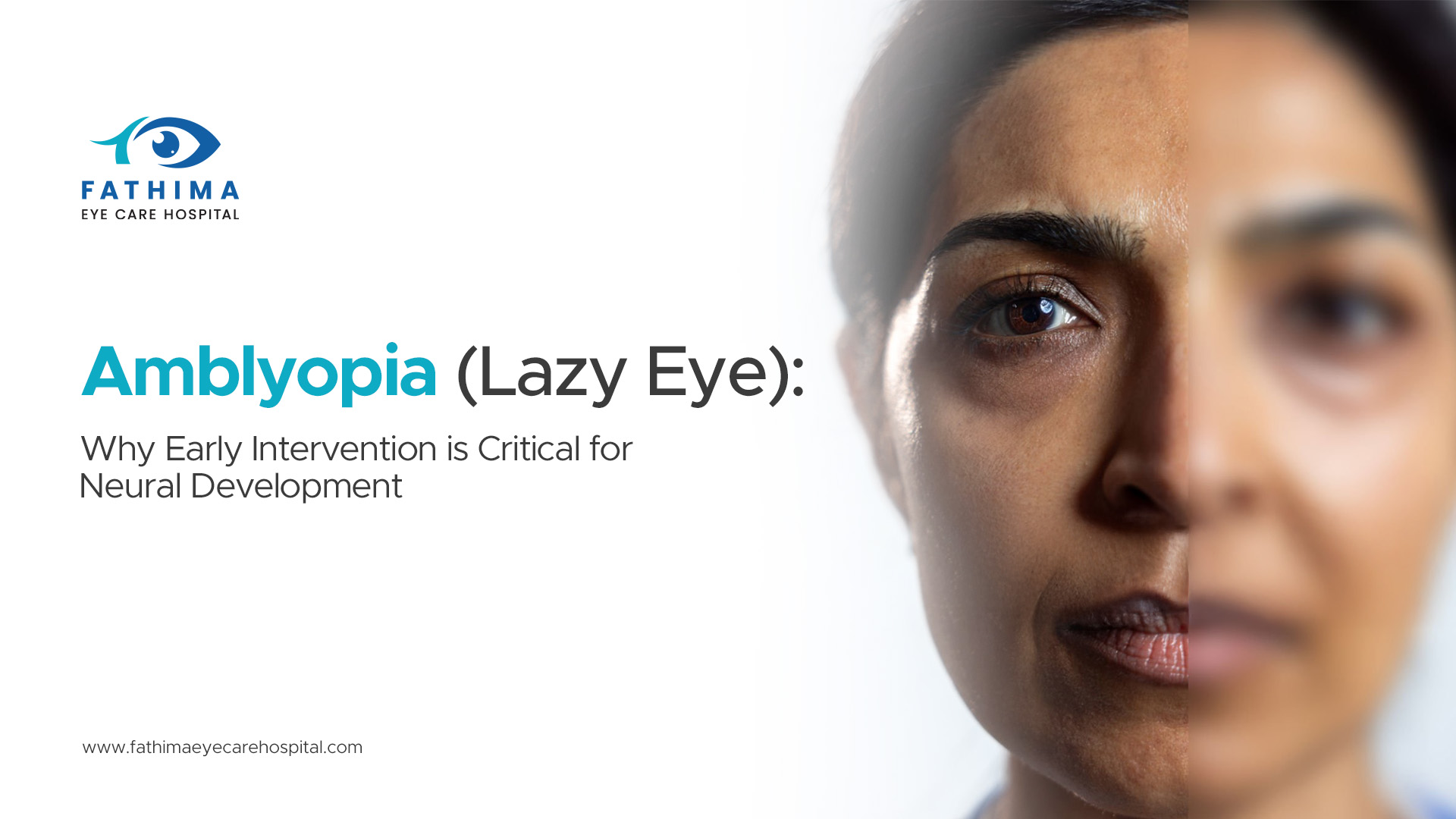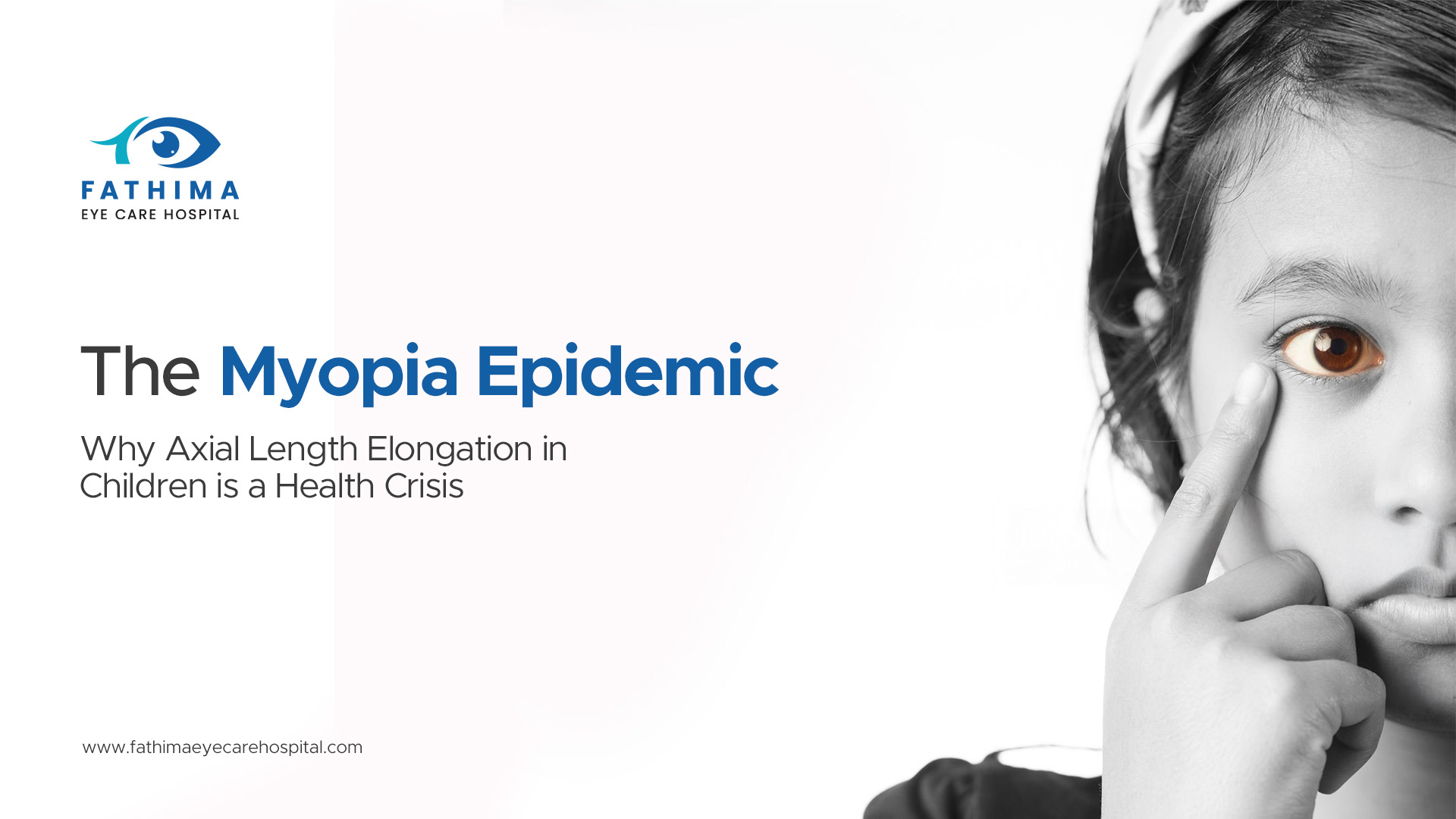

Our eyes are the most precious and indispensable organs in our body, and maintaining healthy eyes over the course of your life is vital. As you get older, your eyes transform, and if you don’t care for your eyes well, you might face common eye conditions like cataracts, glaucoma, dry eyes, and more. Luckily, by engaging in exercises for better vision and making some diet changes, you can enjoy sharp and clear vision for many more years. Let’s look at various tips for eye health you can adopt for healthy and perfect vision.
How to Maintain Good Eye Health in Childhood (0-12 Years)
Healthy eyes are instrumental for a child’s learning and development. Great eyesight is vital for the growth of children, particularly when they start schooling, where most of the learning is visual. We’ve outlined a few healthy vision tips to maintain healthy eyes in children.
Routine Eye Exams: To identify any eye condition soon, it’s important to get eye exams regularly. Conditions such as Refractive errors, amblyopia can be treated effortlessly when detected early on. A comprehensive eye exam for a baby must be done at around 6 months, suggested by pediatricians. The baby must have their second eye exam at 3 years of age and the next exam before they start schooling.
Wear UV Protection Sunglasses: Exposure to UV rays can damage the eyes, raising their chances of serious conditions like cataract and macular degeneration when they grow old. Protecting eyes from UV rays is vital. So ensure your child wears UV protection sunglasses that block UVA and UVB rays when they are outside.
Limit Screen Time: Nowadays, concerns have arisen about the prolonged use of smartphones in children. This can cause more harm in the form of eye strain and cause certain eye conditions. So make children adhere to the 20-20-20 rule, which is to look away from the screen every 20 minutes at something that lies 20 feet away to minimise eye strain.

Eye Health Tips for Teens and Young Adults (13-30 Years)
This is a stage where we overlook our eye health while we navigate studies, work, and a bustling social life. But, you can prevent major problems down the line by making some lifestyle changes including doing exercises for better vision. They are:
Wear protective eyewear: No matter if you’re engaged in sports, using tools or just wandering outside, sporting protective eyewear can avoid severe injuries. To avoid blunt force trauma to your eyes, make use of sports goggles or helmets with face shields.
Eat eye-healthy foods: Getting nutrition for eye health is the key. Including foods abundant in vitamins and minerals, particularly Vitamin A, C, E is vital for great eye health. Some of the best foods for great eye health include leafy greens, carrots, seeds and nuts, tuna, mackerel, eggs etc.
Routine eye exams: One of the key things you can do for preventing eye problems is to do routine eye exams, particularly if you sport glasses or contact lenses. A complete eye examination can catch diseases early on and help you stop them on track.
Practice Safe Contact Lens Care: If you’re someone using contact lenses, proper care is vital to prevent infections and other complications. Be sure to wash your hands every time you touch lenses, stick to the suggested wearing schedule and be sure to remove the lenses before sleeping. It’s usually suggested that you change lenses periodically and utilize proper cleaning solutions to clean your lenses.
Reduce Screen Time: Prolonged screen time can result in digital eye strain. To tackle this issue, make sure you take breaks from looking at screens and place your device around 20-24 inches away from your eyes. Make sure you place your screen at eye level to avoid eye strain, neck pain, dry eyes, headache and other issues.
Healthy Vision Tips For Adults (30-50 Years)
Your body starts to transform while you step into your 30s and 40s. The same applies to your eyes. You might find it hard to read small print or even face eye-related issues. Therefore, during your 30s and 40s, early intervention is vital. These are some of the tips for eye health for adults.
Keep an Eye on Vision Changes: If you fall under this age, you might often find it hard to focus on close objects. And to overcome this issue, you may require reading glasses or bifocals. It’s vital to tackle these issues early to prevent further problems in future.
Protecting Eyes From UV rays: UV Protection sunglasses while outdoors, since if you expose yourself to UV rays for a long time, it can raise your chances for serious eye conditions. Wear a hat with brims when you’re outside.
Limit Screen Time: Nowadays, concerns have arisen about the prolonged use of smartphones in children. This can cause more harm in the form of eye strain and cause certain eye conditions. So make children adhere to the 20-20-20 rule, which is to look away from the screen every 20 minutes; at something which lies 20 feet away for 20 seconds to minimise eye strain.
Eye Exams Every 2 Years: Eye exams in regular intervals are vital. An ophthalmologist can detect early symptoms of the problems such as glaucoma, macular degeneration or diabetes. After you cross 40 years, an eye exam every 2 years becomes essential as you have more likelihood of suffering from these conditions.
Eat eye-healthy foods: Including foods abundant in vitamins and minerals, particularly Vitamin A, C, E is vital for great eye health. Some of the best foods for great eye health include leafy greens, carrots, seeds and nuts, tuna, mackerel, eggs, etc. They are vital to preventing oxidative damage that can result in age-related eye problems.

How to Maintain Good Eye Health in Seniors (50+ Years)
When you become old, your chances for specific eye conditions increases. They include but are not limited to cataracts, glaucoma, dry eyes, diabetic retinopathy, and age-related macular degeneration. Prevention and diagnosis are vital to preventing eye problems when you’re old.
Regular Eye Exams: Make sure you do regular eye exams every year, since common eye conditions are more common after 50 years of age. Early detection can avoid or decelerate the development of problems such as glaucoma, cataracts, and AMD, which can result in vision loss when ignored.
Avoiding Blindness from Age-related Problems: Cataract is a condition in which the eyes become clouded and vision becomes blurry. There are many changes in your lifestyle you can adopt to prevent the condition, such as wearing UV protection sunglasses, including antioxidant-abundant foods, and handling eye problems such as diabetes. AMD, or age-related macular degeneration, is another common problem seen in seniors. It impacts the central vision, which makes tasks such as reading hard. This issue can be averted by following a diet rich in spinach and kale.
Do Physical Exercises for Better Vision: Staying active without fail can enhance blood circulation, which further enhances your eye circulation, which is beneficial for your eye health. Exercise can also minimise your likelihood of eye conditions, for instance, diabetes and hypertension that can negatively impact your eye’s blood vessels.
Keep a Healthy Weight: If you’re obese, your chances of becoming diabetic shoot up. This further fuels a condition called diabetic retinopathy, which can negatively impact the blood vessels in the retina. The key to maintaining healthy eyes is having a nutrient-rich diet and managing your weight.
Use Special Eyewear: When you grow old, reading glasses or bifocals are vital. You can see well when you engage in distance or close-up tasks when using progressive lenses or multifocal lenses. Besides, some elderly benefit from special eyewear made to improve contrast and minimise glare, which can be beneficial day or night.
Fathima Eye Care is By Your Side to Protect Your Vision at Every Age of Yours!
Your eyes are precious and need utmost care lifelong. By adjusting every aspect of your life, including sleep, diet, and physical activity at every stage of your life, you can immensely minimise the chances of eye conditions and enjoy clear vision throughout your life. From exercises for better vision to a nutrient-rich diet, the tips outlined in this holistic eye health guide will help you safeguard your vision at every stage of your life. No matter if you’re a child, adult, or senior, caring for and monitoring your eyes will pay off tomorrow.






